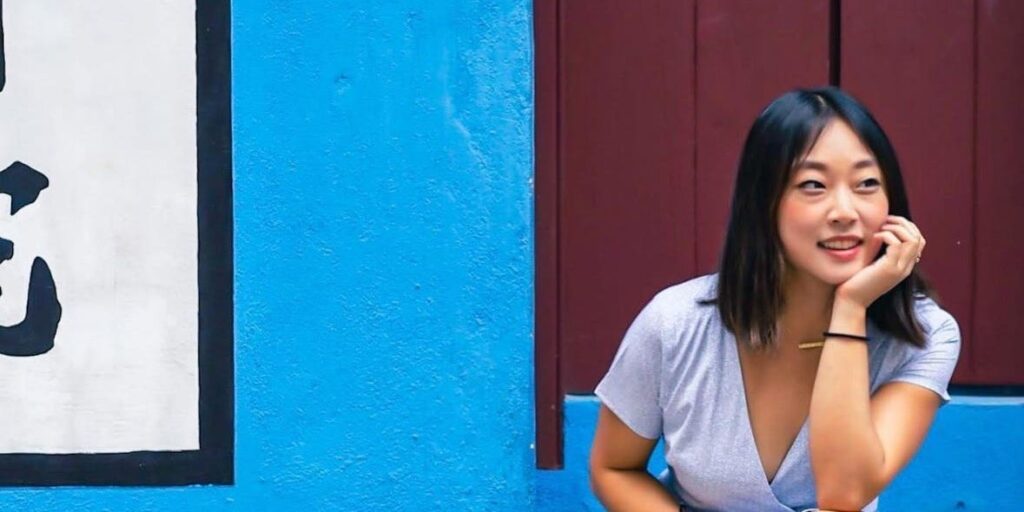[ad_1]
This as-told-to essay is based on a conversation with Lily Wu, a 31-year-old Chinese American compliance professional who moved to Hong Kong in her early 20s. Her words have been edited for length and clarity.
If you’d asked me where I was from 10 years ago — before I moved to Asia — my answer would’ve been very different.
“Where are you from?” has become the poster question for how Asian Americans are often treated as foreigners in their own country. I used to reply, “Boston,” very matter-of-factly. I grew up there. I’m American. I speak English. It was a defensive answer, like: “Don’t challenge me.”
Now, I just say, “I grew up in the US, but I’m ethnically Chinese.” It’s honest, efficient, and I’m less defensive about it than I used to be.
American, born and raised
I was born in Ohio but spent my early years in China while my parents studied in the US as part of the first wave of Chinese students to leave under Deng Xiaoping’s 1980s reforms.
We eventually settled in Boston, my hometown. I grew up surrounded by other Chinese or Chinese-American kids, and it felt like a little cultural cocoon.
Lily Wu
Later, when I started middle school at Boston Latin School, I met kids from around the world — including China, Vietnam, Cambodia, and Mexico. A lot of kids at my school were local to Boston, but most non-white students, like me, were children of immigrants.
That shift gave me my first understanding of how wide the world was.
Related stories
I grew up in a Chinese enclave and went to a diverse, progressive school where overt racism wasn’t socially acceptable, at least not in my circles.
Cantonese was my first language — my mom’s family is from southern China — but over time, I stopped using it. One day, I started answering my parents in English, and they let it stick.
Eventually, we became an English-speaking household.
Looking back, I wish I spoke better Cantonese and Mandarin. Like many Asian Americans, I wanted to fit in — and while maybe my parents could’ve pushed harder, my brother and I were probably just stubborn.
As a kid, I didn’t think much of it, but now I feel a growing pull to reconnect with my roots. I was still surrounded by Chinese culture: I went to Chinese school, played the yangqin (a Chinese instrument), and watched “My Fair Princess,” a TV drama, with my mom.
Now, there’s so much I still want to learn — not just the language, but everything that comes with it.
Lily Wu
Next stop: Hong Kong
I studied international relations and economics at Tufts University, then joined a rotational finance program working across departments. My first role was in asset management in Boston.
For my final rotation, I asked to be placed in Hong Kong, and the company made it happen. I’d spent most of my life in Boston, with a study abroad year and an internship in London, so moving to Hong Kong — a city I’d only visited once as a kid — felt like the right kind of adventure. I was 23 and ready to see more of the world.
The transition was surprisingly smooth. Hong Kong is easy for foreigners to navigate — English is widely spoken, and the infrastructure is world-class.
But being Asian American here is complicated. You blend in until you open your mouth — then people switch to English. It’s efficient, but also a reminder that you’re not quite “one of them.”
Culturally, I’m a “gwei mui” — Cantonese slang for a Westernized girl. I used to feel embarrassed by that, but now I’ve learned to accept it.
Still, I see the value in understanding Hong Kong more deeply through its language and customs. It’s ironic: I spent my childhood trying to be fully American, and now I find myself wanting to be more Chinese.
Lily Wu
Asia shifted my perspective
When I visit the US now, I feel a kind of reverse culture shock — the streets are wide and quiet, and hardly anyone walks.
Growing up in the States, I was constantly told how amazing it was, but I was rarely told how great other cities around the world were, too.
That’s starting to change, thanks to social media showing things like food delivery robots in China, high-tech toilets in Japan, and Hong Kong trains that run every few minutes. You’d never see that in Boston — I don’t miss waiting 30 minutes for the subway in the freezing cold.
Things just run more efficiently here. Still, I love going back to the US to see my parents and friends. I appreciate the space and calm.
But these days, landing in Hong Kong feels more like coming home.
Got a personal essay about moving to Asia that you want to share? Get in touch with the editor: akarplus@businessinsider.com.
[ad_2]
Source link


